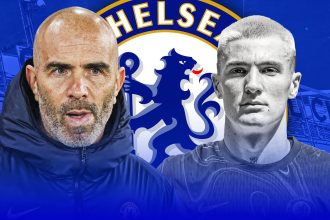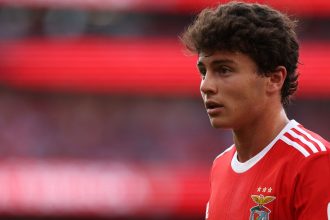Florentino Perez has moved to reshape Real Madrid’s financial future, preparing to sell a 10% stake through a newly created commercial company after already securing €360 million from Bernabeu-related profits. The president outlined the plan to club members, insisting it will “protect us as an institution” and allow Madrid to raise funds without becoming a public limited sports company.
Perez prepares second ‘lever’ to raise €500m-€1bn
According to , Madrid president Perez has initiated one of the massive corporate changes in club’s modern history, laying out plans to sell approximately 10% of a newly formed commercial entity in order to generate fresh investment. The move follows the club’s earlier deal in which they sold 20% of future Santiago Bernabeu profits to Sixth Street and Legends for €360 million (£317m/$417m), a financial manoeuvre widely framed as Madrid’s first “lever”.
Perez detailed the new proposal to Real Madrid’s members, stressing the need to modernise the club’s organisational structure while maintaining the traditional member-owned model. As he told members directly: "Our club must have an organisational structure that protects us as an institution and also protects all of us as owners of Real Madrid. To this end, I confirm that we will bring to this Assembly a proposal for the club's corporate reorganisation that secures our future, protects us from the threats we face, and, above all, guarantees that the members are true owners of our club and its financial assets.”
Those words underline the president’s attempt to balance the necessity of new investment with the fiercely guarded identity of the club as a non-SAD (Sociedad Anonima Deportiva, a special type of public limited company related to sports) sporting entity. Perez has long admired versions of Germany’s 50+1 structure, but Spanish law presents stiff barriers to adopting that model. With no legal path to transform Real Madrid into a Bayern Munich-style hybrid, the club is instead exploring a framework of subsidiaries that would enable investment without relinquishing sporting control.
AdvertisementPerez leans on advisors
Los Blancos' financial advisors, including Anas Laghrari, Key Capital Partners and Clifford Chance, have reportedly pushed towards a strategy that mirrors what Madrid previously set up with Real Madrid Estadio SL in 2021, the company that currently manages several stadium-related operations. Perez is now expected to replicate this model through the creation of an instrumental commercial entity that investors can buy into, without any influence over the club’s governing bodies.
This approach protects Real Madrid from ever becoming a public limited sports company, a transformation that would dilute the members’ historic power. Instead of a direct sale of the club, shareholders would be purchasing equity in a business that manages commercial activities such as sponsorships, stadium operations, events and marketing rights. The sporting side, first team, academy, coaching structure, sporting decisions, would remain 100% owned by the members.
Perez’s insistence on the club’s member-driven identity was underlined again in his internal assembly message. With expenses on the revamped Bernabeu now reaching €1.347 billion, up from the original €575m plan, the club requires a new injection of liquidity simply to stabilise its financial trajectory, as per the report.
Rising stadium debt pushes Madrid toward controlled investment
Madrid’s financial situation has become more demanding with each construction revision. As of June 30, 2025, the outstanding loan debt for the stadium stood at €1.132bn. Inflation, the war in Ukraine, the retractable pitch (€225m) and improved acoustic systems for concerts have all contributed to the ballooning cost, which now totals €1.347bn. Despite the immense commercial potential of the modernised Bernabeu, the short-term strain is massive.
This new model also mirrors, in a more controlled way, the “levers” used by Barcelona to avoid bankruptcy. Barca created entities such as Barca Studios, Barca Licensing Merchandising, and the Barca Innovation Hub. Perez will follow a similar path but with stronger safeguards, any shares created in the new company will be distributed automatically and free of charge to existing club members, functioning more as membership rights than tradeable financial instruments.
Crucially, the commercial company created under this model is expected to stay fully majority-owned by Real Madrid, ensuring that members remain the ultimate decision-makers.
Reports earlier also indicate that the club is also studying a partial demerger between its sporting and commercial operations, an approach that could serve as a precursor to a more structured hybrid governance model. Investors would hold minority stakes in the commercial arm, but the sporting entity would remain untouched, safeguarding the philosophy Perez has championed for over two decades.
This structure is intended not only to raise capital but also to protect Real Madrid from political, legal, or market-driven vulnerabilities in the future.
Getty Images SportLegal checks & long-term investment roadmap
The immediate next step is the extraordinary assembly, where socios will vote on Perez’s restructuring proposal. Advisors are currently preparing the legal and tax framework to ensure compliance with Spanish sports law, which requires that all commercial income be reinvested for sporting use and prohibits the distribution of profits.
If approved, Bernebeu will establish the new subsidiary, define which commercial assets it controls, and begin negotiations with investors already expressing willingness to inject capital. The club is expected to prioritise strategic partners with long-term interest in global sports ventures, rather than short-term financial firms.
In the wider picture, this move represents Madrid’s attempt to future-proof its financial model as football’s economic landscape becomes increasingly dominated by state-backed clubs and global investment groups.






